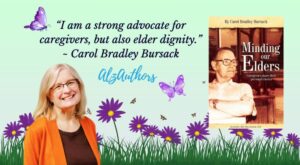Home is Where Our Heart Is, Especially for Older Adults
For many of us, the word “home” signifies refuge, safety, caring, and warmth –a sanctuary where we belong. It’s a place that we know is waiting for us at the end of our daily journey into the sometimes cold and uncaring world.
The actual location of our home may be dynamic rather than static—ever-changing as our personal world changes. Yet the meaning of home remains the same: a place of comfort.
Most of us who’ve cared for people with dementia have heard the sad, repetitive lament, “I want to go home.” If the person lives in a nursing home or assisted living facility, relatives naturally think that the home the elder wants to return to is the last place he or she lived before going to the care home.
More likely, at least in the case of Alzheimer’s disease, the home this elder misses is a childhood home. It’s the home where he or she felt the comfort of a mother’s arms; the safety of a father’s protection.
Again, this home is a state of mind rather than a building. Even if we could take our loved one to the actual house of his or her childhood, it’s not likely that this structure would bring comfort. A sense of comfort comes from being with other human beings who love us and will do what they can to care for us.
A comforting experiment
Loving, hands-on care, positive feedback and flexibility often help people with dementia feel less anxious and more cared for, and thus, makes them feel more at home.
Years ago, I read of an experiment at the Parker Jewish Institute in New Hyde Park, N.Y. It…
Discover the Difference. EGOSAN: The premium incontinence brand caregivers love – Now Available on Amazon.
Geriatrician Opens Support Group to New Members Year-Around: https://betterhealthwhileaging.mykajabi.com/hop-aging-parents-webinar-signup
Support a caregiver or jump-start discussion in support groups with real stories – for bulk orders of Minding Our Elders e-mail Carol








